Explore how QurAlis and UMass Chan are revolutionizing Fragile X syndrome treatment using advanced ASO technology, setting new standards in therapeutic development.
Read moreResearcher
BK Channel Openers: A New Drug for Fragile X Is Ready for Clinical Trials
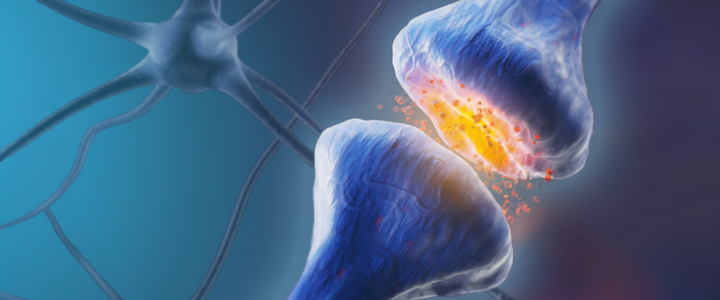
Discover the promising new BK channel opener, SPG601, now entering clinical trials for Fragile X syndrome. Learn about its potential to restore synaptic function and address core symptoms.
Read moreRecruiting: Tetra Therapeutics Phase 3 Clinical Trial of Zatolmilast in Fragile X Syndrome

Tetra Therapeutics has launched large scale clinical trials of their phosphodiesterase (PDE) inhibitor for males ages 9-45 with Fragile X syndrome. FRAXA Research Foundation’s basic and translational research pointed the way to phosphodiesterase inhibitors to treat Fragile X.
Read moreRenewed Hope: Navigating Towards a Cure for Fragile X Syndrome

Discover how Dr. Peter Todd’s latest Fragile X Syndrome research offers hope for advanced treatments and a possible cure, marking a new era in FXS therapy.
Read moreInside the FRAXA Drug Validation Initiative: Advancing Fragile X Treatments
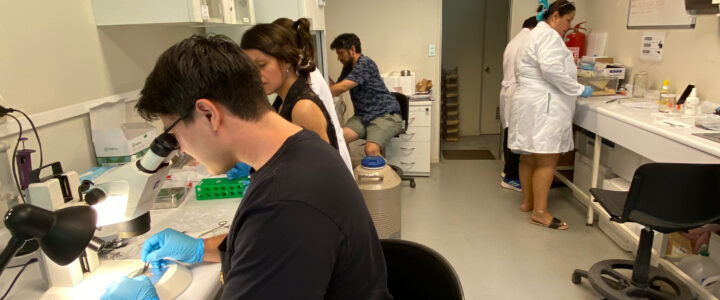
Explore how the FRAXA Drug Validation Initiative is revolutionizing Fragile X syndrome treatment, leading the charge towards innovative therapies and hope for affected families.
Read morePharmacologically Activating mGluR7 as a Novel Therapy for Fragile X Syndrome

Join Dr. Tsai and Dr. Kumar on a journey into novel treatment avenues for Fragile X syndrome. Learn how activating mGluR7 could be a game-changer, opening up uncharted therapeutic territory.
Read moreTwo-Med Combo Normalized Behavior, Improved Memory in Fragile X Mice

Treating Fragile X syndrome will likely require a combination of drugs, as a single medication may not address all symptoms. At FRAXA-DVI, Dr. Patricia Cogram and her team recently tested a combination of two investigational new drugs in Fragile X mice, with support from Healx. Together ibudilast and gaboxadol rescued a wide array of symptoms in the mice.
Read moreRecruiting: Unveiling Probiotic Potential in Fragile X Syndrome Clinical Trial

First of its kind in Serbia, this clinical trial explores probiotic intervention as a potential treatment avenue for Fragile X syndrome.
Read morePharmacological Modulation of Nicotinic Signaling
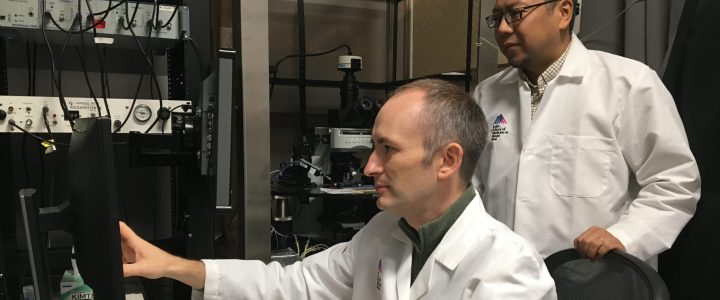
Nicotine — familiar to any smoker — tickles nicotinic acetylcholine receptors in the brain. These receptors are key to important brain functions including learning and memory. This team will explore whether drugs that dampen these receptors can improve cognitive function in Fragile X.
Read moreAstrocyte Contribution to Sensory Hypersensitivity in Fragile X Syndrome
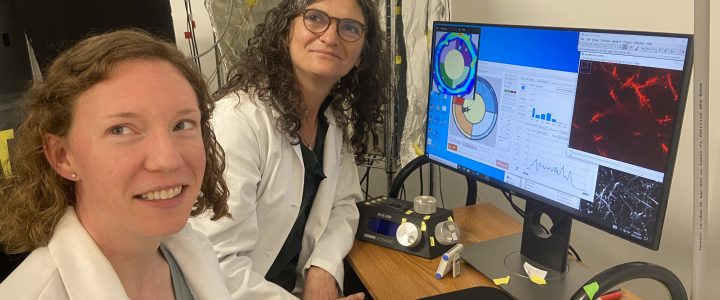
Most Fragile X research has focused on one type of brain cells: neurons. But mounting evidence point to problems with astrocytes, star-shaped cells which are vitally important to normal brain function. This team is working to understand how astrocytes are involved in Fragile X and develop treatment approaches that targets astrocytes alone.
Read moreReactivating the FMR1 Gene to Reverse Fragile X Syndrome
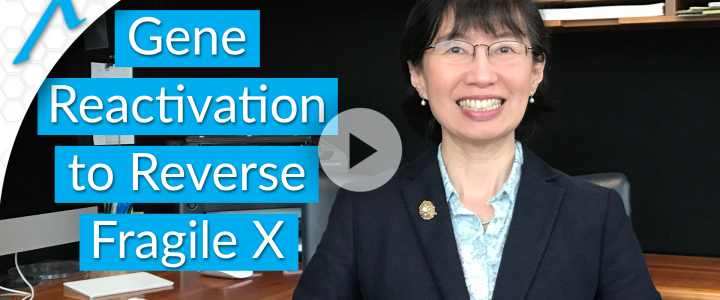
FRAXA Research Foundation is dedicated to funding breakthrough research, providing $240,000 to reactivate the FMR1 gene to combat Fragile X Syndrome, with the goal of restoring vital protein function and advancing towards a cure.
Read moreC-subunit Mitochondrial Leak Channel in Fragile X Syndrome

Explore Yale’s groundbreaking study on mitochondrial leak channels, set to revolutionize Fragile X syndrome treatment. Funded by a $100,000 FRAXA grant.
Read moreSomatosensory Processing as a Therapeutic Target for Fragile X Syndrome

Awarded a FRAXA Research grant, Dr. Andrew Stanfield, Dr. Leena E. Williams, and Dr. Damien Wright are set to explore somatosensory processing (sense of touch) in Fragile X syndrome at the University of Edinburgh. Their aim? A noninvasive touch test that could set the stage for future clinical trials in FXS.
Read moreAntisense Oligonucleotides (ASOs) to restore FMRP in Human Fragile X Cerebral Organoids

Explore Dr. Richter’s encouraging results with ASOs for Fragile X syndrome. A $100,000 grant now fuels pivotal studies needed to advance toward ASO therapy.
Read moreSlack Potassium Channel Inhibitors to Normalize FMR1 Knockout Mice

Learn how a $100,000 FRAXA research grant supports Yale researchers in using Slack potassium channel inhibitors to treat Fragile X syndrome by normalizing behaviors in FMR1 knockout mice.
Read moreRoles of Postnatal Transient Connectivity in the Development of Fragile X Syndrome
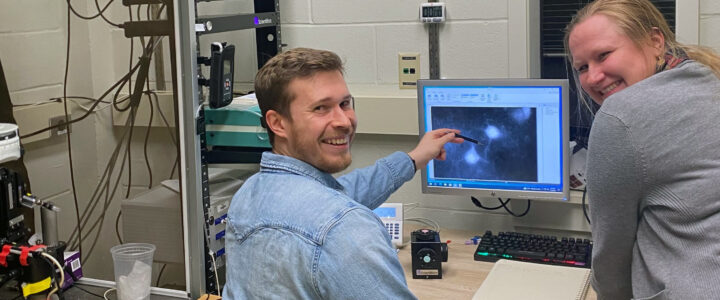
A $100,000 FRAXA research grant awarded to Gabrielle Pouchelon, PhD, and Dimitri Dumontier, PhD, at Cold Spring Harbor Laboratory fuels groundbreaking research on Fragile X syndrome. Their work focuses on understanding sensory sensitivities and developing a noninvasive screening method, a potential game-changer for families affected by Fragile X syndrome.
Read moreA Tat-Conjugate Approach to Treat Fragile X Syndrome

Explore Turner Lab’s novel approach to developing definitive treatment for Fragile X syndrome with a Tat-conjugated, truncated FMRP protein. This innovative strategy aims to restore brain circuit function and reduce abnormal behaviors linked to Fragile X by directly addressing the cause of Fragile X: a missing protein.
Read moreThe Endocannabinoid System and Fragile X Syndrome

Explore groundbreaking research on the potential of Cannabidiol (CBD) in modulating the endocannabinoid system for Fragile X syndrome therapy. Discover how CBD could change the natural course of Fragile X.
Read moreInnovative Breakthrough in Fragile X Treatment: The Promise of Antisense Oligonucleotide (ASO) Therapy

This changes everything! FRAXA funded research introduces Antisense Oligonucleotide (ASO) Therapy, redefining Fragile X syndrome treatment and understanding.
Read moreUnraveling Fragile X Syndrome: New Insights into FMR1 Gene Reactivation

Discover groundbreaking methods for reactivating the FMR1 gene in Fragile X syndrome. Dive into the transformational research and the implications of self-healing at a cellular level.
Read moreAllos Pharma Advances Phase 3 Clinical Trial Design for Potential Fragile X Syndrome Treatment, Arbaclofen

Discover Allos Pharma’s advancements in a pivotal Phase 3 trial for Fragile X syndrome treatment, Arbaclofen. Learn how their FDA-informed trial design might finally bring hope to the Fragile X community.
Read moreModeling Fragile X Syndrome using Multi-Region Human Brain Organoids

Discover groundbreaking research at UCI by Dr. Watanabe and Dr. Tsai. Using cutting-edge organoid technology, they’re modeling Fragile X brain function and advancing potential treatment testing.
Read moreSRC Family Kinase Inhibitor as a Potential Treatment for Fragile X Syndrome
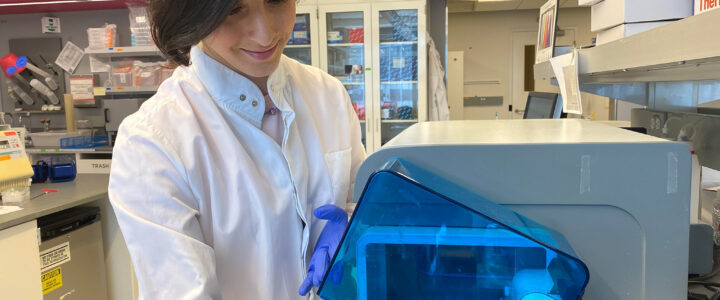
Discover the Smith lab’s new approach to treating Fragile X syndrome using Saracatinib, originally a cancer drug. Learn how this $100,000 FRAXA research grant-funded study opens up hopeful avenues.
Read moreFragile X Syndrome and Cancer Research: Unexpected Links and Opportunities for Collaboration

Discover unexpected links between Fragile X Syndrome and cancer. Studies show people with Fragile X have much lower cancer rates. Explore new opportunities for collaboration in this promising research.
Read moreUsing Exosomes to Discover Fragile X Biomarkers

How can a blood test give an accurate picture of brain activity? With this grant from FRAXA, Dr. Martire and Dr. Boussadia will try to use unique particles called exosomes – which can travel from brain cells to the blood stream – to evaluate the effects treatments are having on the brain.
Read more
